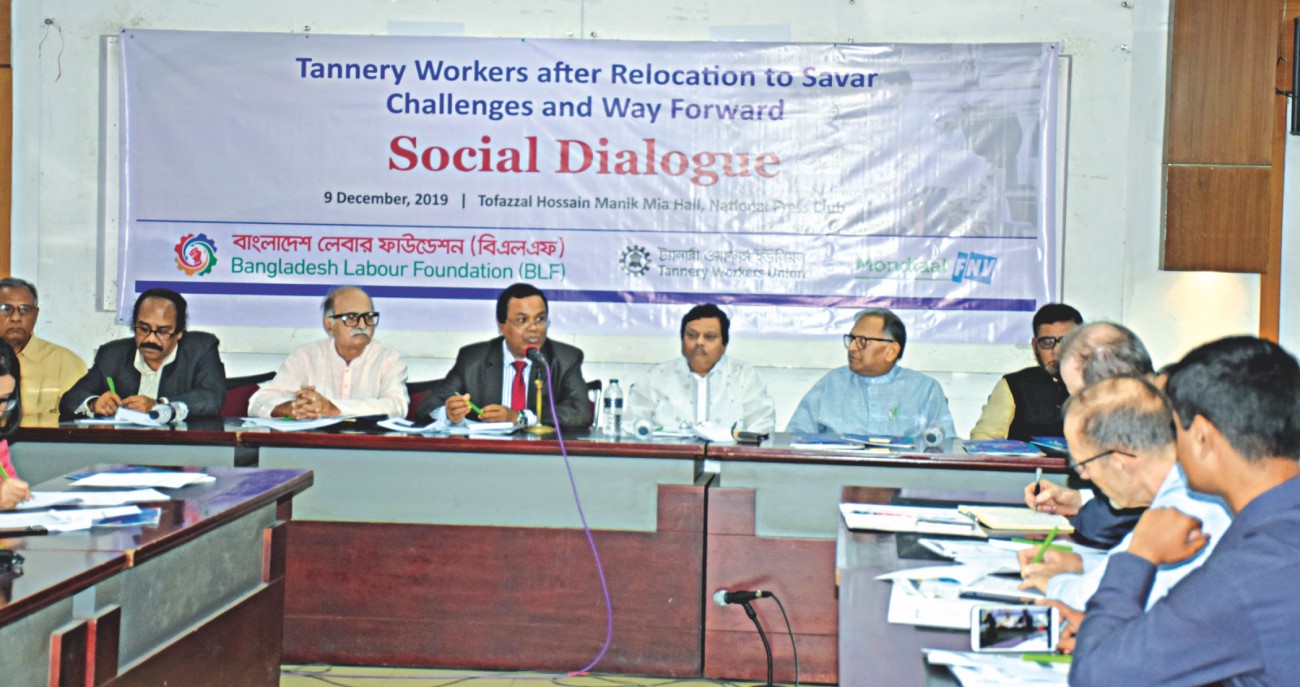Tannery relocation led to job losses: experts

The relocation of the tannery industry from Hazaribagh to Savar has not brought any good news for its workers and deepened their woes further in the form of job losses instead, workers and experts said yesterday.
“In spite of huge investment and government efforts to make tanneries environment-friendly and create jobs by moving to Savar, the industry is now facing more challenges,” said Mahmudul Hasan Khan, manager for programme at the Bangladesh Labour Foundation (BLF).
“Workers were dealt with the biggest blow for this modification as tannery owners are cutting jobs blaming dull exports,” he said.
Exports of leather and leather goods dropped around 30 percent year-on-year to $1.08 billion in 2017-18. It fell further to $1.01 billion in 2018-19, according to data from the Export Promotion Bureau.
In the first five months of the current fiscal year, receipts from leather and leather goods exports slumped 10.03 percent to $391.09 million. “Not only that, workers weren’t paid the government-set minimum wage for the sector and many factories are subcontracting works to cut the number of staff,” said Khan.
He was presenting a keynote paper at a dialogue on “Tannery workers after relocation to Savar: challenges and way forward” organised by the BLF at the National Press Club in Dhaka.
The Savar Tannery Industrial Estate’s central effluent treatment plant (CETP) is not fully functioning as one of its four modules is still to operate, he said.
Abdus Salam Khan, chairman of the BLF, said despite getting large pieces of land, many tanneries had still not shifted their facilities to Savar. As a result, leather and leather goods production was declining.
“The plots in the estate have been allocated only to the owners. There is no place for the workers to stay, no hospital for their treatment and no schools for their children,” he added.
SM Manjurul Haq, a tannery worker, said 10 months had already passed with no salaries being paid. Owners do not treat workers like human beings and many tannery workers’ families are now living life in misery, he said.
He urged the government to take proper steps to alleviate their woes.
Shib Nath Roy, inspector general of the Department of Inspection for Factories and Establishments, said most of his department’s workforce were focused on the garment sector, so they were unable to inspect the conditions of facilities in other sectors.
“Now we are planning to recruit more labour inspectors so that other sectors like the tannery industry comply with relevant laws, policies and regulations,” he said.
He also proposed a policy dialogue between workers, owners and governments entities to resolve the issue.
ZM Kamrul Anam, secretary general of the BLF, moderated the event.
